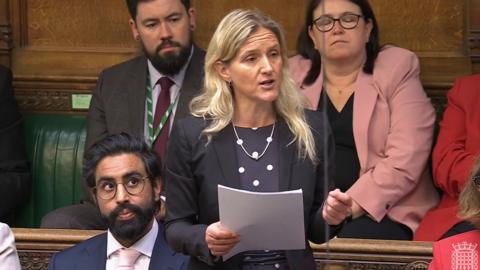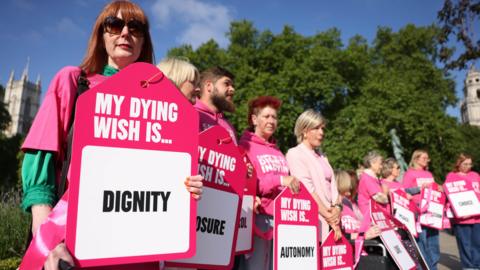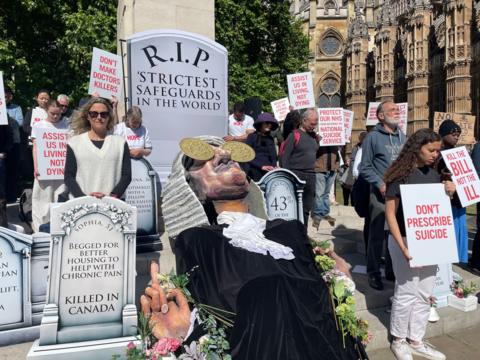However, MPs ran out of time to vote on more changes, so further debate and voting will take place on 13 June.
That would be followed by a vote on whether to pass the bill as a whole to its next stage or reject it, either on the same day or a future date.
The government is neutral on the bill and MPs have been given a free vote, meaning they can decide based on their conscience rather than having to follow a party line.
The original bill stated that no registered medical practitioner or other health professional would be under any obligation to participate in the process of assisted dying and they could not be discriminated by their employer if they did not wish to do so.
Under a change proposed by Kim Leadbeater, the Labour MP behind the bill, and approved by MPs, this has been expanded say no one would have to take part in the process, giving protections to any staff who might be involved.
Setting out her support for the bill in a debate earlier, Leadbeater said many people had "lost loved ones in deeply difficult and traumatic circumstances".
The MP for Spen Valley added: "Put simply, if we do not vote to change the law, we are essentially saying that the status quo is acceptable."
Conservative MP Rebecca Paul, who opposes the bill, argued there should be a focus on improving end-of-life care, rather than assisted dying.
"It will harm far more people than it will help," Paul said.
"And those people who will be harmed are among the most vulnerable in our communities and I'm not willing to accept this collateral damage."


